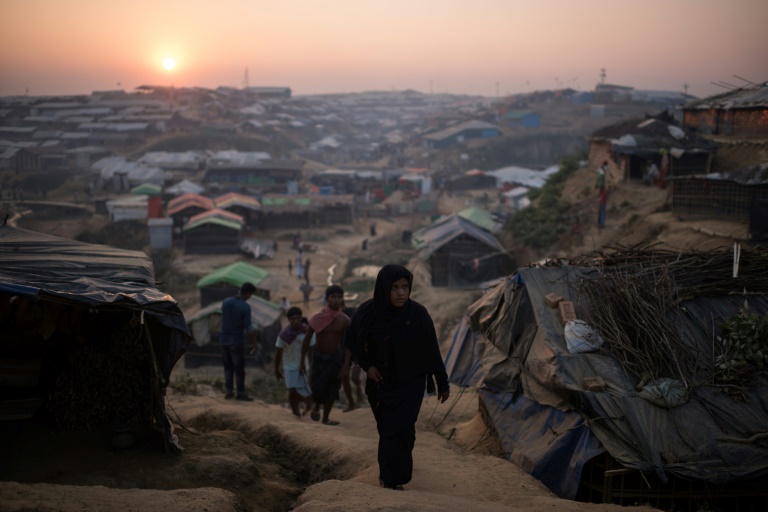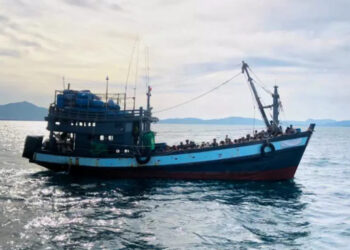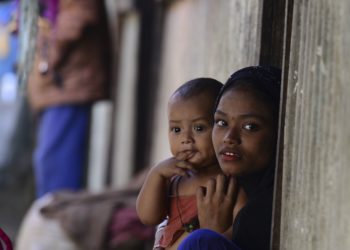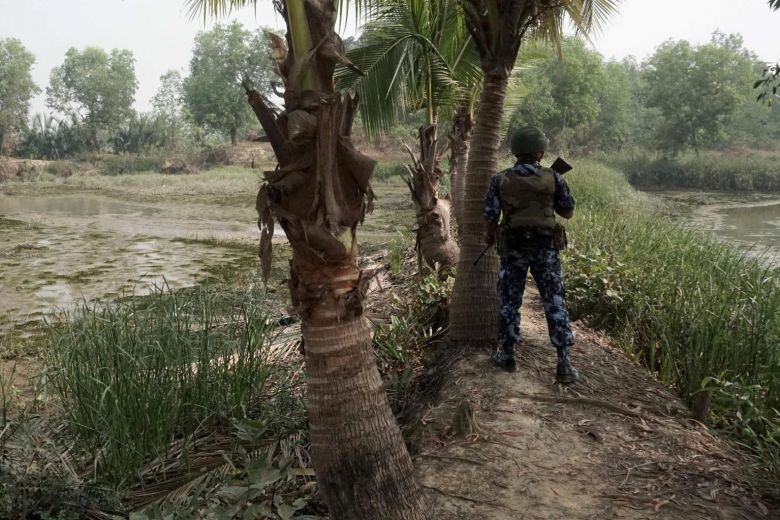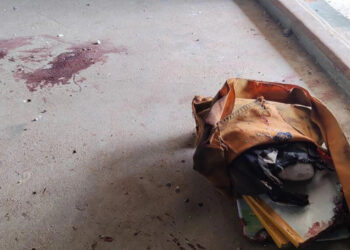Bangladesh on Thursday said it has banned two aid agencies from Rohingya camps in the country’s southeast, alleging they were telling refugees to reject repatriation to their homeland in Myanmar.
The move came amid growing impatience from Dhaka about the presence of the refugees in the country, two years after some 740,000 were driven over the border by a brutal military crackdown on the Muslim minority.
The latest repatriation attempt by Bangladesh and Myanmar two weeks ago, the second in less than a year, failed with not a single refugee volunteering to cross the border back home.
U.S.-based Adventist Development and Relief Agency (ADRA) and local organization Al Markazul Islami were accused by the government’s NGO Affairs Bureau of “instigating” the stateless minority against the recent repatriation attempt.
Other humanitarian agencies including Human Rights Watch and Amnesty International have also consistently expressed concerns over the repatriation efforts.
“Myanmar has yet to address the systematic persecution and violence against the Rohingya,” Human Rights Watch said in August. “So refugees have every reason to fear for their safety if they return.”
The Rohingya are not recognized as an official minority by the Myanmar government, which considers them Bengali interlopers despite many families having lived in the country for generations.
U.N. investigators say the 2017 violence warrants the prosecution of top generals for “genocide” and the International Criminal Court has started a preliminary probe.
Kamal Hossain, the government administrator of Cox’s Bazar district where the refugee camps are located, said Dhaka had issued a notice for the NGOs to immediately stop their activities across the country.
“The administration is taking action accordingly to the issued order,” he told AFP, adding that the NGO Affairs Bureau also ordered bank transactions by the two agencies to be halted.
More than 130 aid agencies work in the three dozen squalid camps in Cox’s Bazar, where the 740,000 Rohingya fled to, joining some 200,000 others already living here.
Foreign Minister A.K. Abdul Momen last week said Dhaka would crack down on aid agencies if they “do something going beyond their terms and references.”
The Rohingya have refused to go home until Myanmar gives them guarantees of safety and citizenship status.
“The Myanmar government raped us and killed us. So we need security. Without security we will never go back,” Rohingya leader Nosima said in an August statement.
Tensions have ratcheted up in the camps in recent weeks as refugees marked the two-year anniversary of the 2017 exodus.
Four refugees have also been killed in the fallout over the murder of local ruling party official Omar Faruk, which police blame on Rohingya hitmen.
Bangladeshi authorities on Monday also ordered operators to shut down mobile phone services in the camps amid the outbreak of violence.
More on the Subject
200,000 Rohingya Rally to Mark ‘Genocide Day’ in Bangladesh Camps


